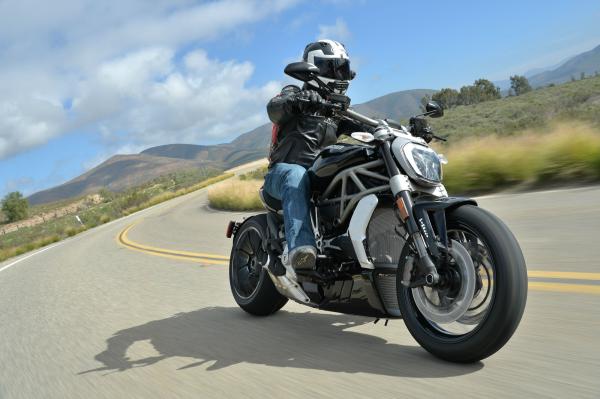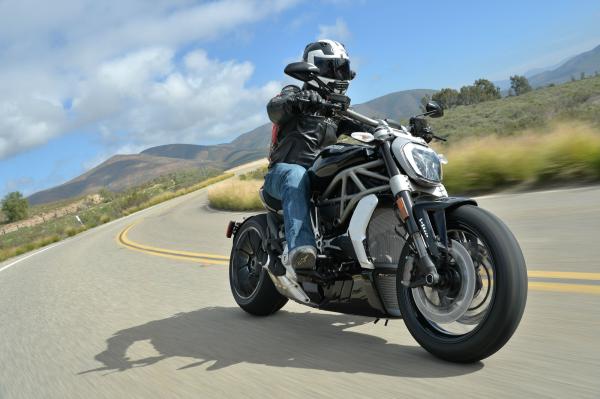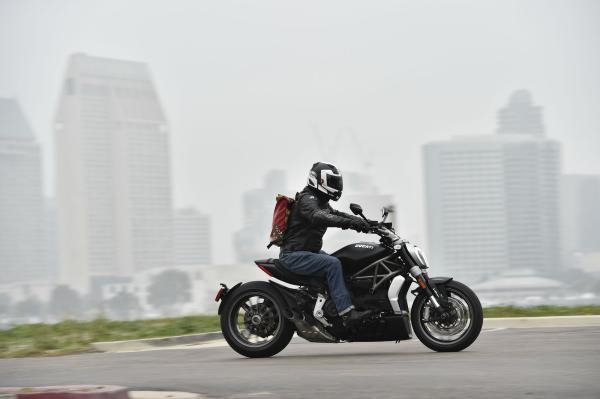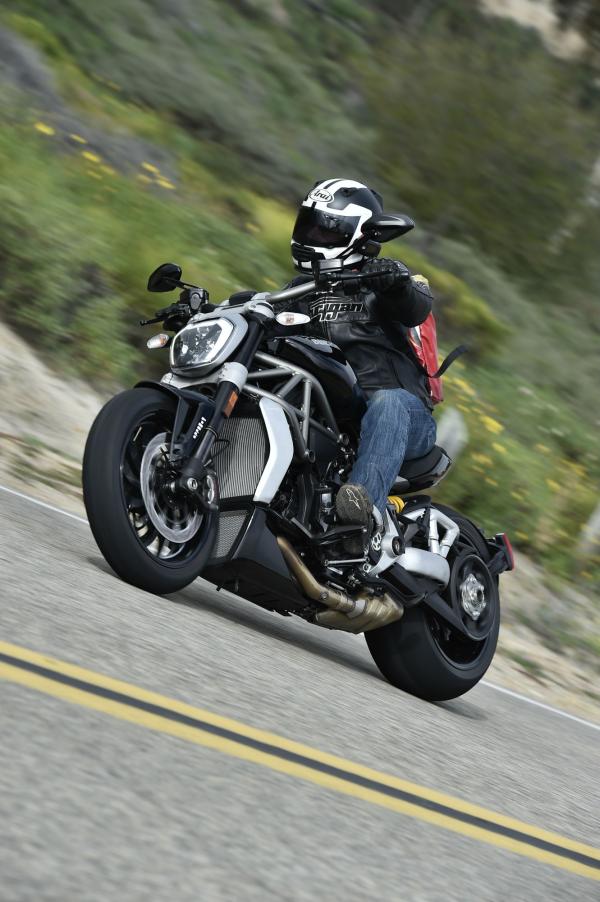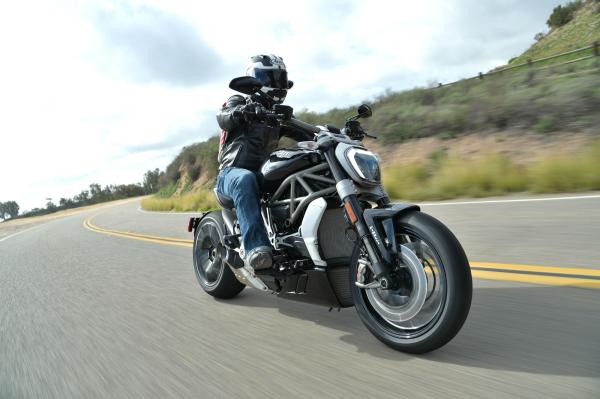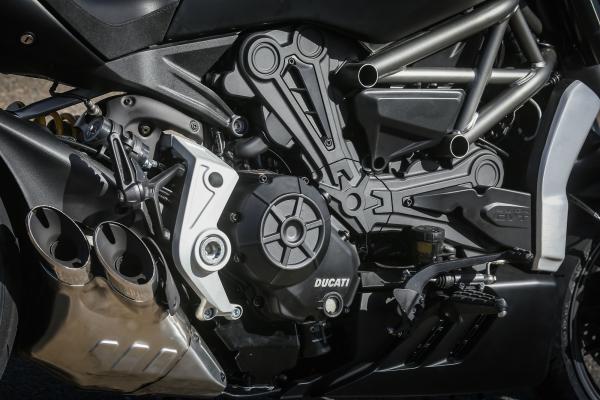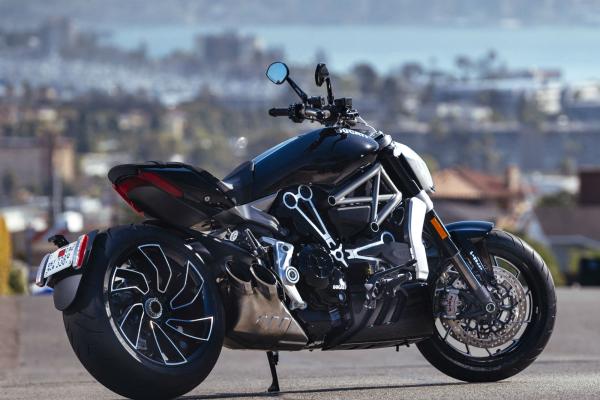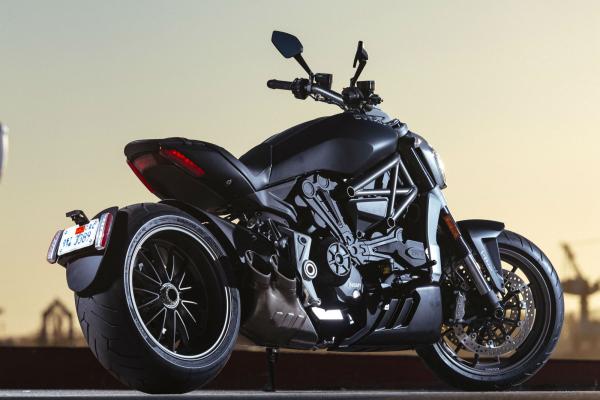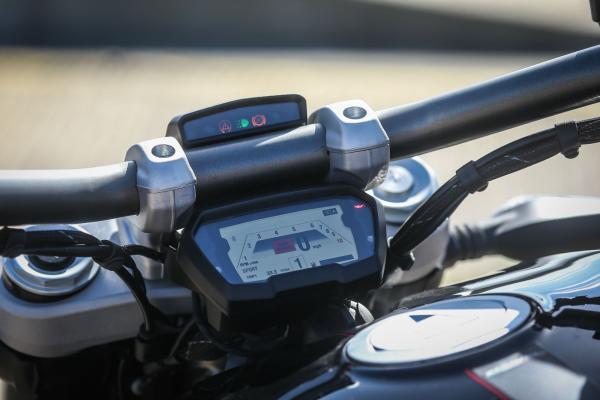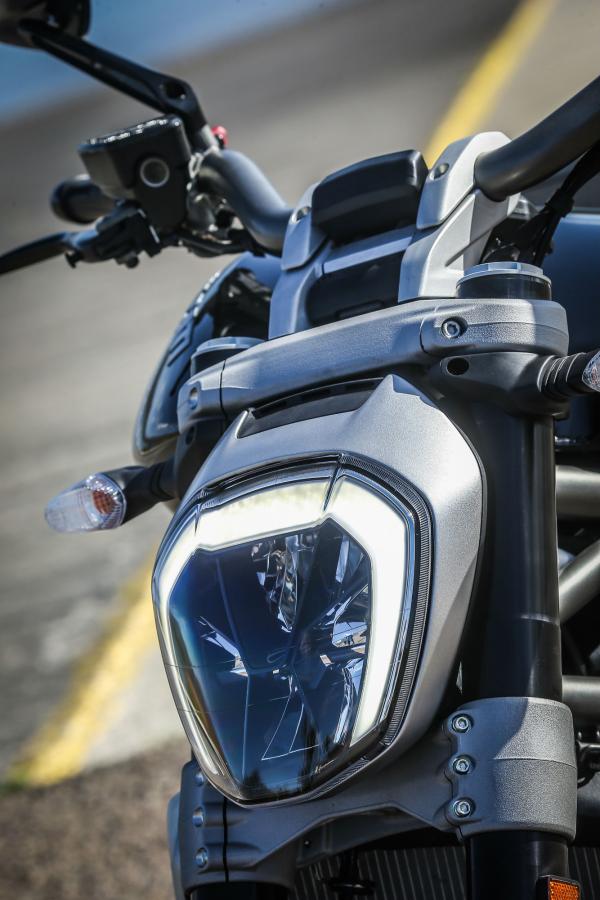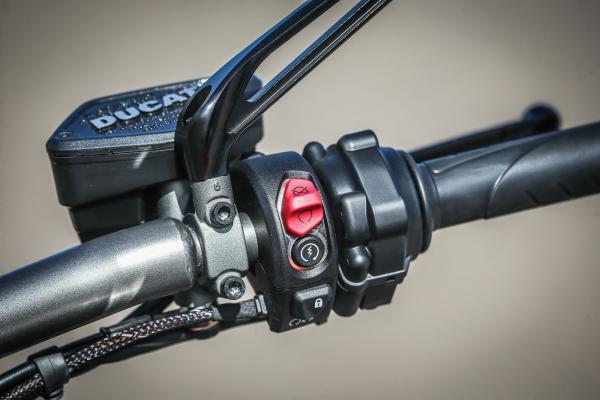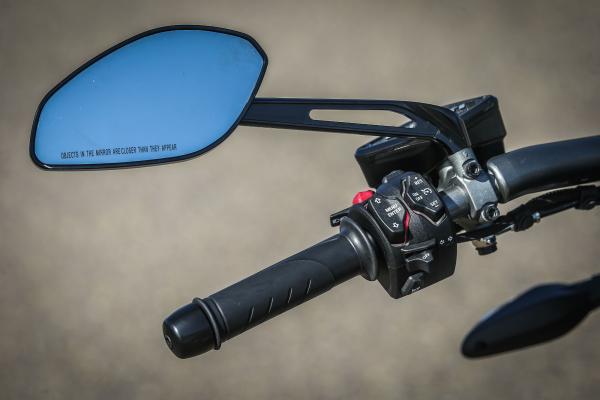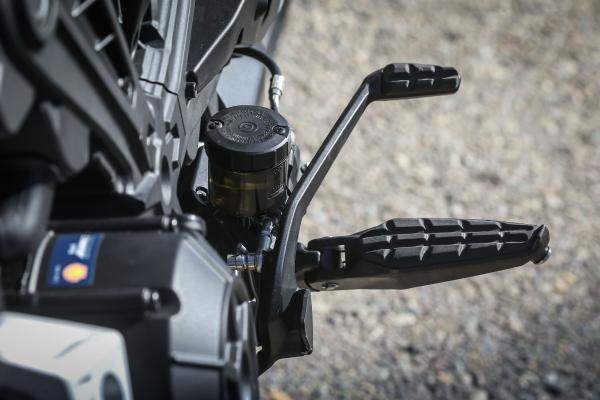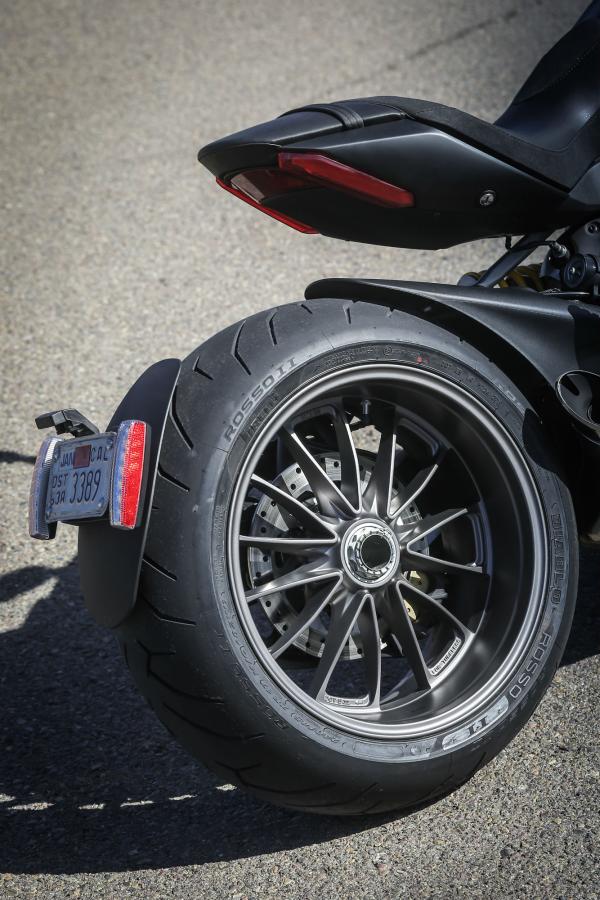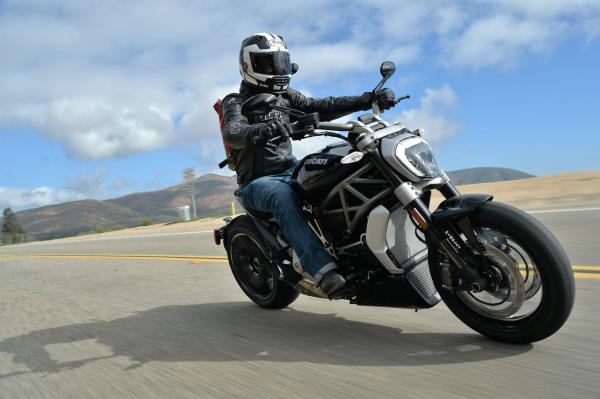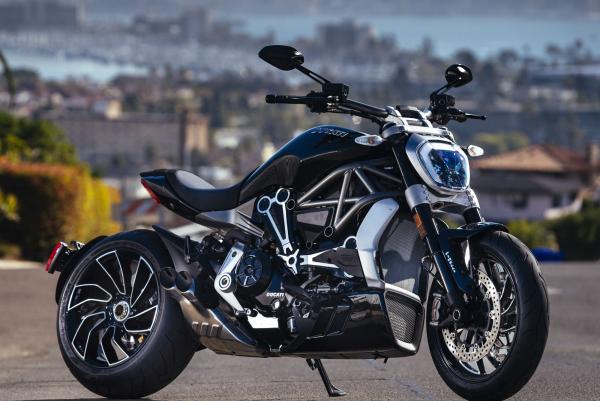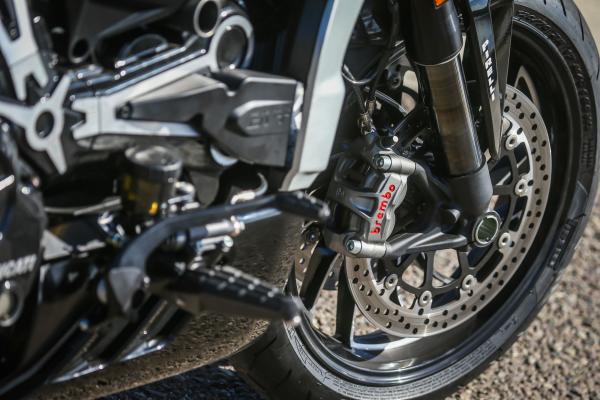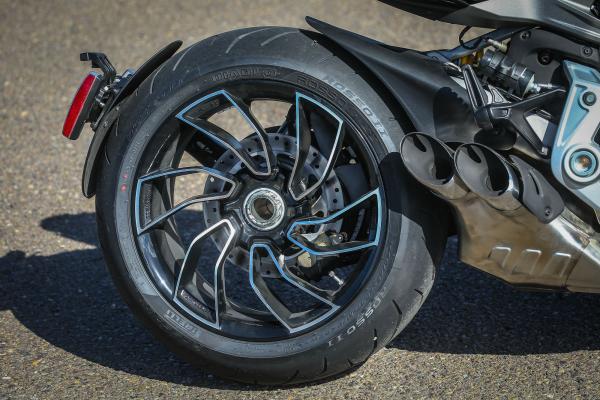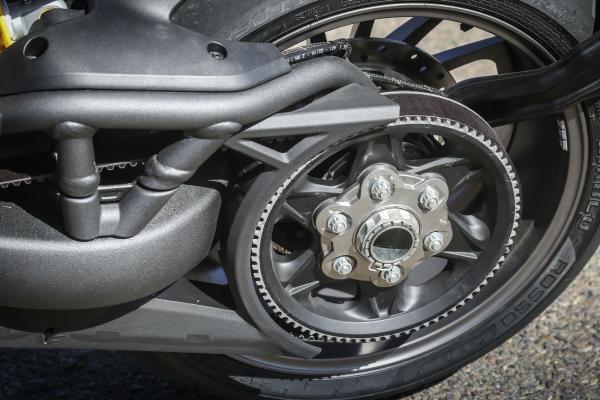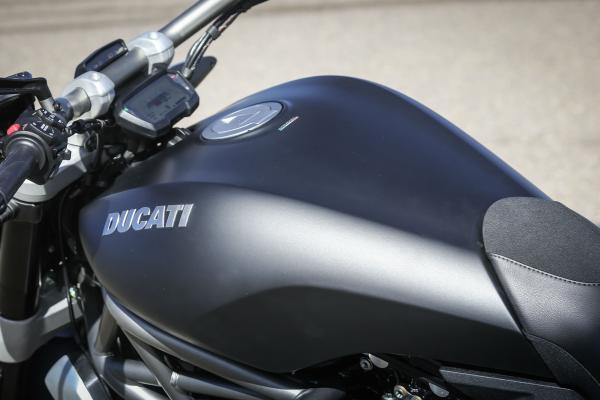XDiavel S review
When you've tried the Ducati XDiavelS, a cruiser suddenly makes a whole lot more sense

Member for
54 years 8 monthsDucati XDiavel S: Design
Ducati broke the cruiser mold when it launched the Diavel. In fact, it smashed it to bits with a mallet. So much so that the result, many have argued, was not actually a cruiser but a variety of naked bike.
But now the Italian marque has put the mallet somewhere safe, fetched out the epoxy resin and painstakingly put the mold back together.
Of course it was never going to be exactly as it was before Ducati started messing about with it, and so the result, the XDiavel, is still not exactly a typical cruiser.
It’s nothing like a typical cruiser. The case is so clear I can set it out in bullet points:
- It makes a 156hp and 95lbft
- It handles well
- It stops really well
- It’s comfortable enough to ride all day
- It’s got a full electronics package including launch control, cornering ABS, traction control, riding modes and cruise control
- It’s better than a typical cruiser
- It’s much better than a typical cruiser
Ducati has used the line ‘low speed excitement’ in its marketing of the XDiavel. Either the firm has developed a keen sense of irony or it’s a typo. Perhaps it was supposed to say ‘low seat excitement’.
Because there wasn’t much ‘low speed’ involved in the excitement I had at the launch yesterday on winding roads in California.
Ducati XDiavel S: Acceleration
The XDiavel delivers a thundering burst of torque and power, especially from 6,000rpm to the red line at 9,000, and the temptation to use it, to accelerate hard at every opportunity, is immense.
You don’t pull away from traffic lights on this. You explode away from them, and eat the road in a series short, angry bursts of acceleration between gear changes.
Launch control seems an unlikely feature on a cruiser, even an Italian one, but I think I understand why Ducati has done it. The US market, where Harley is king, is obviously incredibly important for this Ducati launch. Now think of all those US films and TV shows, like American Graffiti, that have featured grudge-match drag races. It’s a pop culture fantasy. In a country of straight roads, the fastest straight-line accelerating vehicle is coolest.
Proving you’ve got the fastest off-the-line cruiser takes skill as well as torque, unless you’ve got launch control, which provides the talent too. Just pin the throttle to the rev-limiter (which you can adjust) ease out the clutch and you’ll theoretically get away faster than the General Lee. I say ‘theoretically’ because, disappointingly, Ducati insisted Californian traffic conditions made it ‘unsafe’ for journalists to try the launch control feature. Odd but true.
They couldn’t stop us using that claimed 156hp and 95lbft though. Even riding along a straight road, with the rev counter needle hovering around, say, 5,000rpm, it’s difficult not to squirt that throttle, just for a moment, just for fun, to feel the burst of acceleration it unleashes.
Ducati XDiavel S: Handling
Corners weren’t so bad either. Given its massive 240-section rear tyre, the XDiavel tips in and out of bends with ease, while the fully-adjustable suspension provides grace and poise.
Ground clearance is excellent. Maximum lean angle is 40° according to Ducati, only 1° less than the Diavel’s, which has centrally-positioned pegs.
I kept thinking the pegs of the XDiavel must be close to touching down but they never did. The roads may have done them a favour – sweeping bends were about as tight as it got – but the clearance is exceptional for a feet-forward cruiser. Compare it to a Harley Fat Boy, with a maximum lean angle of 27° on the left and 26.2° on the right.
Part of the reason for the good ground clearance is that the pegs aren’t as far apart as they tend to be on more traditional cruisers.
I’m not a lover of cruisers. I’m sure I’ve complained in other road tests about feeling alienated by the bizarre physical contortion required just to sit on some of them.
The XDiavel feels much more natural straight away. Feet are forward but not that forward - and the pegs are adjustable. The bars aren’t so far away that my arms aren’t long enough to turn them to full lock.
Perhaps because your legs aren’t so splayed, the wind doesn’t try to push your knees away from the tank at speed.
I felt at home on it within minutes and thought: ‘If this is a cruiser then I get it.’
Ducati XDiavel S: Engine
The engine is Ducati’s Testastretta V-twin, as used in the Multistrada 1200, but with capacity increased from 1198 to 1262cc courtesy of a longer stroke. That means it’s got DVT – not deep vein thrombosis but Ducati’s variable valve timing, aimed at maximising torque at both ends of the range.
The water pump has been repositioned between the cylinder heads so that no hoses are visible.
It’s a shame it’s not louder. It sounds unmistakably like a Ducati, but only a couple of years ago I wondered how the Monster 1200 could possibly have passed the same noise limits as Japanese bikes. I don’t ask the same thing about the XDiavel. The noise police have finally got to them.
The torque curve is interesting. It’s got two peaks, both above 94lbft. The first is the absolute peak of 95lbft at 5,000rpm. The second, almost as big, is at about 7,400rpm. In the middle, from about 5,500 to 7,000, is a dip to about 90lbft.
It means that, while the Diavel makes slightly more peak torque, with 96.3lbft at 8,000rpm, the XDiavel makes about 15lbft more at 5,000rpm.
Given that’s so, the XDiavel didn’t feel quite as urgent in the low-to-mid-range as I might have expected. In fourth gear at about 40mph, with the rev counter at just below 4,000rpm, it picks up briskly but not so you’d guess peak torque is only 1,000rpm away. It’s only at about 6,000rpm that the real party starts.
That’s in Sport mode. In Touring, it takes a few seconds for it to properly pick up from 4,000rpm in fourth.
There are three pre-set riding modes, with Urban in addition to Sport and Touring. Each offers a different level of traction control, ABS and throttle response. Touring and Urban provide cornering ABS, courtesy of a Bosh inertial measurement unit, which knows how far you’re leaning over. It’s designed to let you grab a handful of brake mid-corner without washing out or going straight on.
Sport reverts to conventional ABS, and only on the front wheel.
Or you can create a bespoke mode, choosing your own combination of settings.
I also found I had to be going quite fast to enjoy using the highest gears. In sixth at 60mph, equating to about 3,500rpm, the V-twin felt a bit laboured and chuggy when I opened the throttle. It seemed much happier and smoother in fourth, with revs higher and more power on tap.
That was on winding roads. At a constant speed on the freeway, with cruise control on, 50 or 60mph in sixth felt like a stroll in the park.
There are two sides to the XDiavel's character. One is the rumbling V-twin that defies you not to open the throttle. The other is the soft seat cupping your bum and the sit-back-and-chill-out riding position.
Sometimes the bike makes you want to pin the throttle. Sometimes it makes you inclined to absorb the scenery and be grateful for life.
The seat, the suspension and 247kg weight make a ride quality that still wasn’t uncomfortable after our 180-mile test ride. If I was ready to get off, it was only from general fatigue.
Ducati XDiavel vs Ducati XDiavel S
There are two versions of the XDiavel – the base model and the XDiavel S. Both were at journalists’ disposal on the launch ride.
Both have Brembo front brake calipers but the S version has higher-spec M50 monoblocs. The base models certainly aren’t lacking but there’s more instantaneous bite from the M50s.
The S also has Bluetooth connectivity. Among things, it can enable the TFT dash to alert you of incoming calls (just what we want while riding) according to Ducati.
There are also cosmetic differences. The S has gloss black paint to the base model’s matt, and lots of machined aluminium where the base does not. They have different wheels, the S’ in gloss black with polished aluminium spoke edges.
The sum effect is significant: the S looks like the more expensive machine, although opinion was split among journalists on the launch, with some preferring the matt black of the base model.
Both have an ugly handlebar, with a thicker section in the middle. Instead of tapering, it joins the thinners ends via two industrial-looking welds. It’s incongruous with the otherwise lovingly styled machine.
The switch-gear rotates a little on the bars, but I’ve come to realise all Ducatis do that. There’s a nice red light behind the switches.
Should I buy the Ducati XDiavel S?
Eighteen grand might seem a lot of money for a mashed up Diavel - but that’s not what this is. It shares no parts with the Diavel except for the brakes and Pirelli Diablo Rosso II tyres according to Ducati. It’s got a longer wheelbase, a lower seat and a longer rake.
And it’s got a belt-drive.
It’s a totally different bike.
Traditional cruisers are expensive too and I think the XDiavel deserves to tempt some riders away from them. I also think it could be one of the first real cruisers to make sense, to be desirable, to ordinary motorcyclists. Me for one.
Ducati XDiavel S: Specifications
- Model tested: Ducati XDiavel/XDiavel S
- Price: £15,795/£18,395 plus OTR
- Engine: 1262cc Testastretta DVT V-twin
- Power: 156hp @ 9,500rpm
- Torque: 95lbft @ 5,000rpm
- Kerb weight: 247kg
- Frame: Tubular steel trellis, stressed-member engine
- Suspension: fully adjustable upside-down fork, Sachs fully adjustable shock
- Brakes: Front Brembo Monobloc four-piston M4-32/M50 calipers on 320mm floating disc. Rear Two-piston floating caliper on 265mm disc. Bosch cornering ABS.
- Tyres: Pirelli Diablo Rosso II
- Seat height: 755mm
- Fuel capacity: 18 litres
- Colours: Matte black/gloss black
